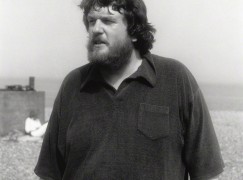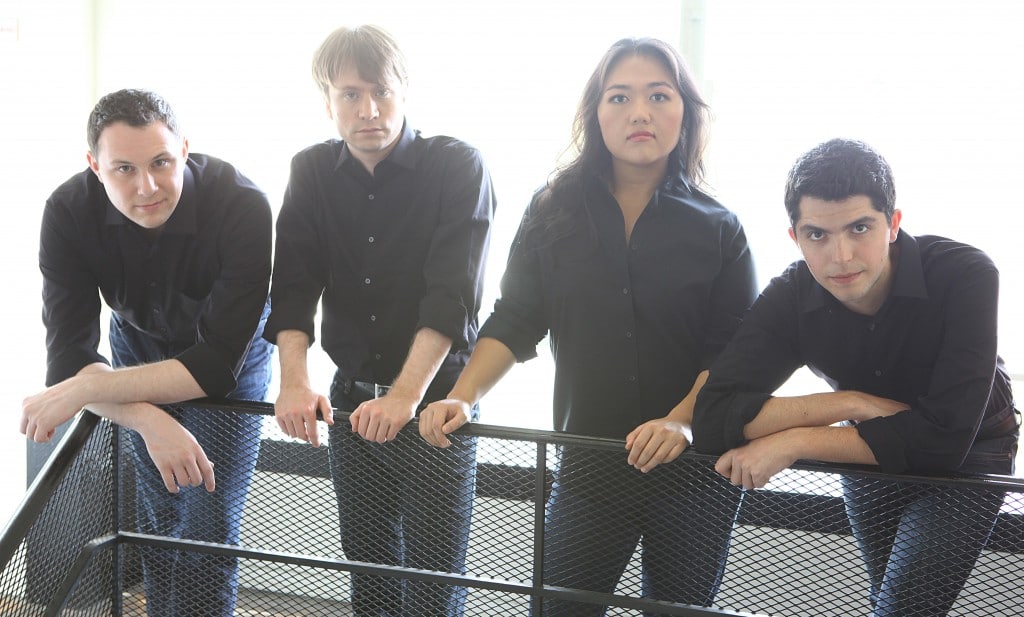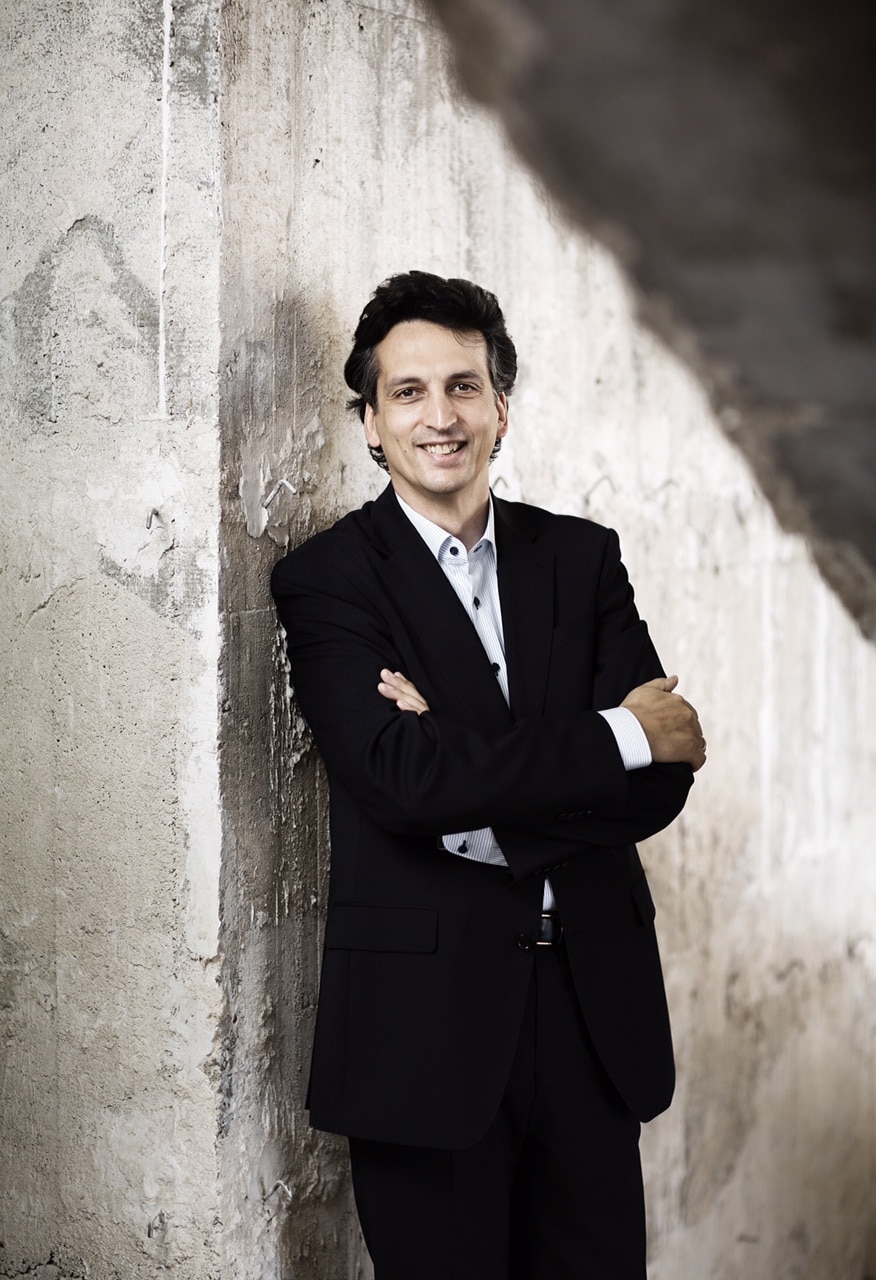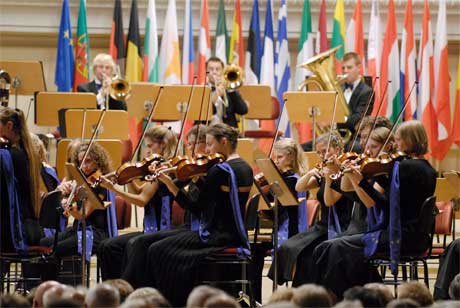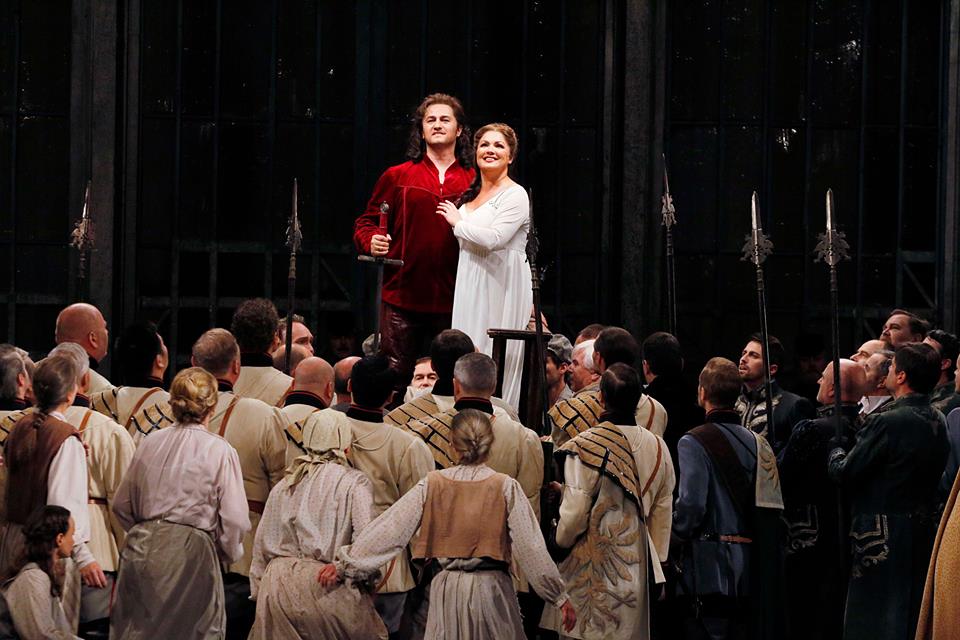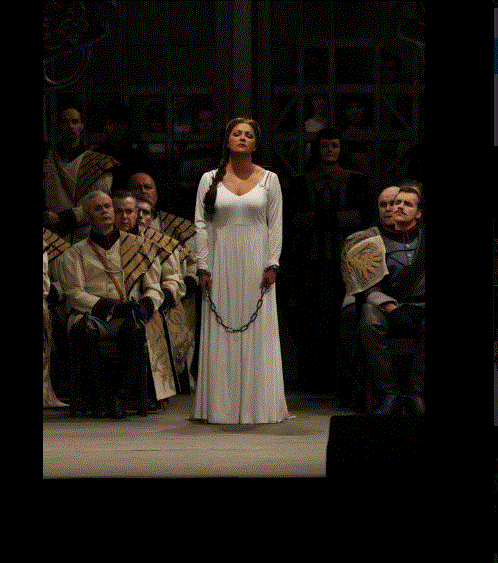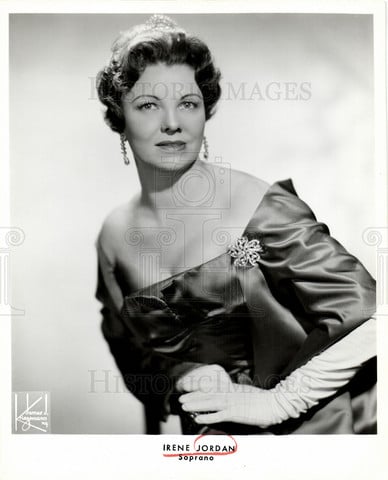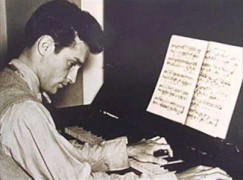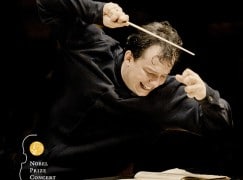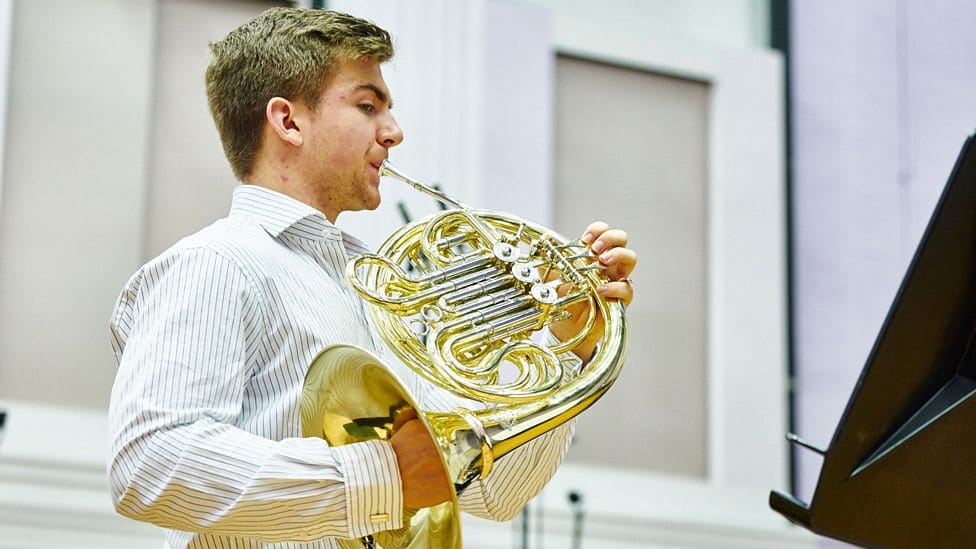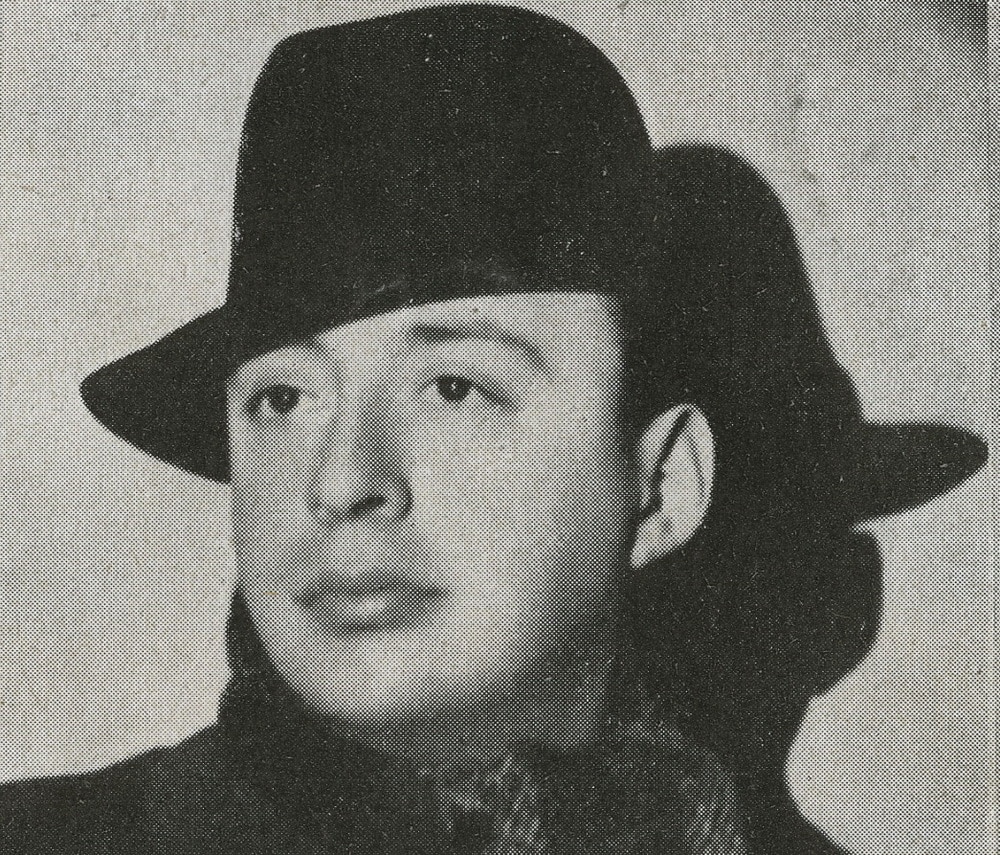Apparently, he will be working with a specialist classical chief, whose appointment will be announced shortly. The vacancy arose as a result of Elizabeth Sobol’s departure (for those are keeping score). The other point to note is that classics will be run out of New York, not LA. Anyway, here’re the press release that’s about to hit Billboard:
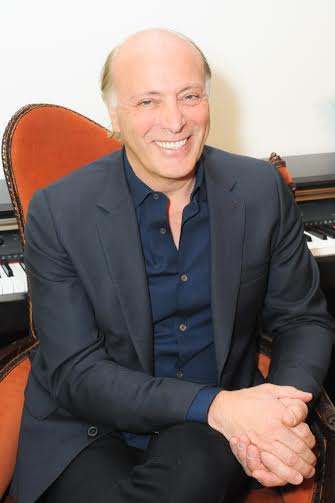
UNIVERSAL MUSIC GROUP FORMS VERVE LABEL GROUP
Veteran Industry Executive Danny Bennett Named President & CEO
New Structure Reflects Deepened Commitment To Jazz and Classical Music
SANTA MONICA, May 19, 2016 – Universal Music Group (UMG), the world leader in music-based entertainment, today announced the formation of the Verve Label Group and appointed veteran industry executive Danny Bennett, a Grammy and Emmy Award-winning music, film and television producer, and long-time manager of his father, legendary singer Tony Bennett, as the label group’s President & CEO, effective immediately.
The Verve Label Group will be comprised of Verve and UMG’s U.S. classical music labels including Deutsche Grammophon, Decca Records, Decca Classics, Mercury Classics, and distributed label ECM. The new structure marks UMG’s continued investment in jazz and classical music and the company’s unwavering commitment to building upon its rich history in both genres, while also opening up new opportunities, developing global cross-over artists and delivering innovative jazz and classical experiences to fans. The jazz and classical labels will maintain distinct A&R, marketing and promotions teams, while also leveraging UMG’s global reach to provide artists with deep resources and expertise to develop their careers.
Under Bennett’s leadership, Verve will relocate to New York, where the label was originally founded 60 years ago as home to jazz legends Ella Fitzgerald, Nina Simone, Stan Getz and Billie Holiday. With his proven strategic marketing skills, Bennett will expand the awareness and reach of UMG’s historic jazz and classical catalogue, and develop and promote emerging artists on a global scale.
Bennett will report to Michele Anthony, Executive Vice President of UMG. Bennett and Dickon Stainer, President and CEO of Global Classics for Universal Music Group, will announce shortly a President of Verve Label Group’s classical music labels.
David Foster, one of the most successful record producers in history, who led the Verve label since 2012, has decided to return full-time to producing, and will continue to work closely with UMG’s labels and artists. Foster is currently producing albums for UMG artists Carla Bruni and Jordan Smith.
In making the announcement, Michele Anthony said, “By forming the Verve Label Group and attracting an industry veteran of Danny’s stature and expertise, Universal Music is making a strong statement about the high value we place on building on our robust jazz and classical repertoire. We are committed to growing our presence in these genres even further and creating crossover successes that deliver artists to new audiences around the world. I want to thank David for the immense creative impact he had at Verve. On behalf of everyone here at UMG, we look forward to recording many more hit records with David for years to come.”
Bennett said, “Universal Music is home to the largest and most historically relevant jazz and classical recordings. It’s a tremendous honor, and I am humbled to be chosen to lead the newly formed Verve Label Group. I’m indebted to David Foster for leading the iconic Verve label and I look forward to working with him on many future productions. Additionally, I offer my profound appreciation to Lucian Grange and Michele Anthony for this amazing opportunity.”
A cri-de-coeur from the French harpsichordist Orhan Memed:
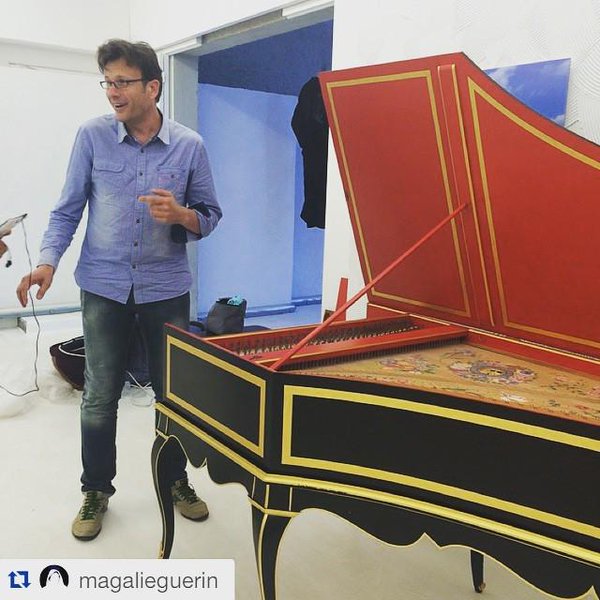
I’m one of the many students of Huguette Dreyfus whom Jory Vinikour mentions in his touching tribute and who finds himself utterly at a loss to imagine the musical world without her presence.
I feel compelled to write to point out with regret how few of her recordings have been reissued. A quick search on the ‘net brings up very little, with only the Bartok and the Bach Partitas released in the last 10 years.
I am probably one of the few who has in his possession the list that Huguette kept of her complete discography and I wanted to share it with you…in the hope that readers would see not only how extensive but also how varied it is… and alas how unlucky we are not to have the opportunity to hear these recordings. The Haydn Trios with Eduard Melkus, for example, are gems and I know how much Huguette cherished them as well.
Years ago, with her permission, I sought to track down what happened to the old Valois recordings. I found out that the stock (and rights) had been bought by Naive and when I approached them I was sent a polite e-mail to say that the stock was in a warehouse and no one had taken the time to organise and therefore impossible to retrieve. A more recent attempt back in 2014 was met with a similar response.
Would it be inappropriate to encourage readers to make their desire to have these recordings re-released known to Naive, Denon, etc.?
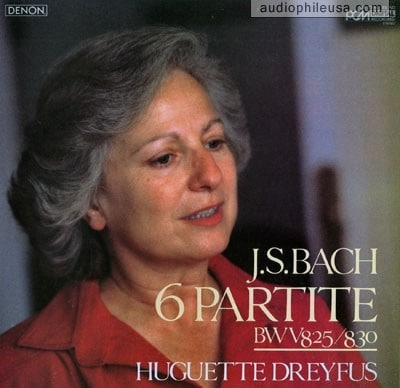
DISCOGRAPHIE
H U G U E T T E D R E Y F U S
Chez DEUTSCHE GRAMMOPHON – POLYDOR :
J. HAYDN : Concerto pour clavecin et orchestre en sol majeur
avec l’orchestre de chambre Paul KUENTZ. (Grand Prix du Disque de l’Académie Charles Cros 1971)
Collection ARCHIV PRODUKTION :
H. I. BIBER : “Sonates du Rosaire” pour violon et continuo avec Eduard MELKUS.
F. COUPERIN : Apothéose de Lully et de Corelli
J.M. LECLAIR Sonate “Le Tombeau” pour violon et continuo avec Eduard MELKUS.
A.VIVALDI : “Il Pastor Fido”, pour divers instruments et continuo.
A. CORELLI : Opus V : 12 Sonates pour violon et continuo, avec Eduard MELKUS. En deux disques. Réédité en C.D.
J.S. BACH : Les Six Suites Françaises pour clavecin.
“Capriccio sopra la lontananza del suo fratello dilettissimo”.
En deux disques. Réédité en C.D.
J.S. BACH : Les Six Suites Anglaises pour clavecin. En trois disques.
Réédité en C.D.
J.S. BACH : Les Six Sonates pour violon et clavecin, avec
Eduard MELKUS. En deux disques.
C.PH.E. BACH : Sonates – Rondos – Fantaisies – jouées sur un Hammerflügel.
Chez VALOIS :
J.PH. RAMEAU : Pièces de clavecin (Intégrale en trois disques).
J.PH. RAMEAU : Pièces de clavecin en concerts, avec Christian LARDE (flûte)
et Jean LAMY (viole de gambe).
(Grand Prix de l’Académie du Disque Français 1964)
(Grand Prix des Discophiles 1964).
F. COUPERIN : Sixième et Onzième Ordres
F. COUPERIN : Anthologie de l’oeuvre pour clavecin en quatre disques
(Grand Prix du Disque de l’Académie Charles Cros 1962).
comprenant 9 Ordres et les 8 Préludes de” l’Art de Toucher le
Clavecin”.
(Grand Prix de l’Académie du Disque Français 1970).
D.SCARLATTI : Anthologie chronologique de 70 Sonates. Coffret de quatre
disques.
J.S.BACH : Quatre Toccatas pour clavecin.
J.S.BACH : La Musique de Chambre:
Enregistrement des Sonates pour violon, pour viole de gambe
et des oeuvres pour flûte avec le clavecin ou la basse continue,
avec G.F. HAENDEL (violon), Christian LARDE (flûte), Jean
LAMY (viole de gambe),Michel DEBOST (flûte) et Claude
MAISONNEUVE (hautbois).
Coffret de six disques.
J.M. LECLAIR : Les 9 Sonates pour flûte et continuo en deux disques, avec
Christian LARDE (flûte) et Jean LAMY (viole de gambe).
(Grand Prix de l’Académie du Disque Français 1968).
J. HAYDN : Seize Trios pour Hammerflügel (Pianoforte), violon et
violoncelle (sur instruments anciens) avec Eduard MELKUS et
E. VOGT.
Coffret de quatre disques.
(Grand Prix du Disque de l’Académie Charles Cros 1972).
Chez ERATO :
Père Coelestin HARST : Pièeces de clavecin : le Troisième Ordre.
(Série Châteaux et Cathédrales : Strasbourg).
C.PH.E. BACH : Concerto en fa majeur pour clavecin et pianoforte avec
Robert VEYRON-LACROIX et l’Orchestre de
Chambre de la Radiodiffusion Sarroise dirigé par Karl
RISTENPART.
J.S. BACH : Participation à l’enregistrement intégral de “l’Art de la
Fugue” avec R. VEYRON-LACROIX et l’Orchestre de
Chambre de la Radiodiffusion Sarroise dirigé par Karl
RISTENPART.
J.S. BACH
W.F. BACH : Quatre concertos pour deux clavecins
J.CH. BACH avec Luciano SGRIZZI.
J.I. KREBS
J.S. BACH : Les douze concertos pour clavecins et orchestre avec
Luciano SGRIZZI, Luigi-Ferdinando TAGLIAVINI,
Yannick LE GAILLARD et l’Ensemble Baroque de
DROTTNINGHOLM.
Chez MUSIFRANCE :
(Une collection ERATO/RADIO FRANCE pour la musique française) :
Henri DUTILLEUX : “LES CITATIONS” avec Maurice BOURGUE,
hautbois, Bernard CAZAURAN, contrebasse et Bernard
BALET, percussion.
(Prix de la Nouvelle Académie du Disque 1994)
Chez CRITERE :
J.S. BACH : Participation à l’intégrale des concertos pour clavecin avec
Ruggero GERLIN et le Collegium Musicum de Paris dirigé par
Roland DOUATTE.
Chez PHILIPS :
Carlos SEIXAS : 14 Sonates pour clavecin (sous les auspices de la Fondation
GULBENKIAN).
J. HAYDN
W.A. MOZART : Sonates pour violon et clavecin avec Claire BERNARD.
Chez BARENREITER-MUSICAPHON :
Hugo DISTLER : Concerto pour clavecin et orchestre avec les Deutsche
BACHSOLISTEN.
Chez HARMONIA MUNDI :
Bela BARTOK : Extraits de “Mikrokosmos” au clavecin, en un disque.
(Grand Prix du Disque de l’Académie Charles Cros 1970);
Chez DENON – NIPPON COLUMBIA :
W.A. MOZART : Les Six Sonates pour flûte et clavecin
KV 10-KV15, avec Andras ADORJAN.
C.PH.E. BACH : Quatre Sonates pour flûte et clavecin, avec Andras
ADORJAN.
J. S. BACH : Quatre Sonates pour flûte et clavecin et Trois Sonates
pour flûte et basse continue, avec Andras ADORJAN
(flûte), et Joachim RABE (viole de gambe).
J.S. BACH : Trois Sonates pour viole de gambe et clavecin, avec
Johannes FINK (viole de gambe).
J.S. BACH : Musique de clavecin : Concerto Italien en fa majeur
BWV 971
Fantaisie chromatique et fugue en ré mineur BWV 903
Fantaisie en ut mineur BWV 906
Prélude et fugue en la mineur BWV 894
J.S. BACH : Inventions et Sinfonies BWV 772/786.
D. SCARLATTI : 14 Sonates pour clavecin.
J.CH. BACH : 3 Concertos pour clavecin et orchestre avec les TOKYO
SOLISTEN.
F. COUPERIN : 11e et 13 e Ordres.
W.A. MOZART : Concerto pour trois clavecins et orchestre KV 107 avec
Georges KISS et Olivier BAUMONT. Deux concertos
pour clavecin et orchestre avec la Capella Academica de
VIENNE dirigée par Eduard MELKUS.
J.S. BACH : Concerto en la mineur pour flûte, violon, clavecin et
orchestre BWV 1044 avec Andras ADORJAN (flûte) et
Jean-Jacques KANTOROW (violon) et le
NETHERLANDS CHAMBER ORCHESTRA dirigé
par Kees BAKELS.
J.S. BACH : Six Partitas pour clavecin BWV 825/830 en trois C.D.
J.S. BACH : Ouverture à la Française – Prélude , Fugue et Allegro
en mi bémol majeur – Quatre duetti.
F. COUPERIN : Septième et Huitième Ordres.
C.PH.E. BACH : Deux sonates pour violon et clavecin
Fantaisie en fa dièse mineur pour violon et pianoforte.
W. FRIEDEMANN BACH : 9 Fantaisies pour clavier.
J.S. BACH : Les “Variations Goldberg” BWV 988
J.S. BACH : 16 transcriptions pour le clavecin de concertos de
compositeurs variés BWV 972/987. 2 C.D.
W.A. MOZART : Sonates et fantaisies sur fortepiano. 2 C.D.
J.S. BACH : Le “Clavier bien Tempéré” Volume 1 BWV 846/869.
2 C.D.
J.S. BACH : Le “Clavier bien Tempéré” Volume 2 BWV 870/893
2 C.D.
PRIX DU DISQUE
GRAND PRIX DU DISQUE DE L’ACADEMIE CHARLES CROS :
1962 : F. COUPERIN : 6è et 11è Ordres (Valois)
1970 : B. Bartok : Mikrokosmos au clavecin (Harmonia Mundi)
1971 : J. HAYDN : Concerto pour clavecin et orchestre en sol
majeur avec l’orchestre de chambre Paul Kuentz
(Deutsche Grammophon-Polydor).
1972 : J. HAYDN : Seize trios pour Hammerflügel (Pianoforte),
violon et violoncelle (sur instruments anciens)
avec E. Melkus et E. Vogt.
(Coffret de 4 disques) – (Valois).
1985 : PRIX DU PRESIDENT DE LA REPUBLIQUE
J.S. BACH : Cinq disques (Archiv Produktion-Deutsche
J.S. BACH : Un disque (Denon-Nippon Columbia)
D. Scarlatti : Un disque (Denon-Nippon Columbia)
Grammophon)
GRAND PRIX DE L’ACADEMIE DU DISQUE FRANCAIS
1964 : J.PH. RAMEAU : Pièces de clavecin en concerts, avec
Christian Lardé (flûte) et Jean Lamy
(viole de gambe – (Valois).
1968 : J.M.LECLAIR : Les 9 Sonates pour flûte et continuo en
deux disques, avec Christian Lardé
(flûte) et Jean Lamy (viole de gambe).
1970 : F. COUPERIN : Anthologie de l’oeuvre pour clavecin en
4 disques comprenant 9 Ordres et les 8
Préludes de “l’Art de Toucher le
Clavecin” (Valois).
GRAND PRIX DES DISCOPHILES
1964 : J.PH. RAMEAU : Pièces de clavecin en concerts avec
Christian Lardé (flûte) et Jean Lamy
(viole de gambe) – (Valois)
PRIX DE LA NOUVELLE ACADEMIE DU DISQUE
1994 : HENRI DUTILLEUX : Participation au coffret de Musique de
Chambre avec “Les Citations” avec
Maurice BOURGUE (hautbois),
Bernard CAZAURAN (contrebasse) et
Bernard BALET (percussion).
DISCOGRAPHIE
Parmi de nombreux enregistrements notons:
Chez D.G.G. Archiv Produktion:
Suites françaises et anglaises de J.S.BACH
Chez Valois :
l’oeuvre pour clavecin de J.Ph.RAMEAU
Chez Harmonia Mundi :
un disque de Mikrokosmos de B.Bartok
Chez DENON-NIPPON COLUMBIA :
des oeuvres de J.S.BACH, C.Ph.E.BACH, W.Friedemann BACH, J.C.BACH,
F.COUPERIN, D.SCARLATTI.
Les disques les plus récemment parus sont :
J.S.BACH: Le Clavier bien Tempéré (Vol.I et II) (DENON-NIPPON
COLUMBIA)
H. DUTILLEUX : “Les Citations” pour hautbois, clavecin, percussions et contrebasse
(MUSIFRANCE. Collection ERATO-RADIO FRANCE)
